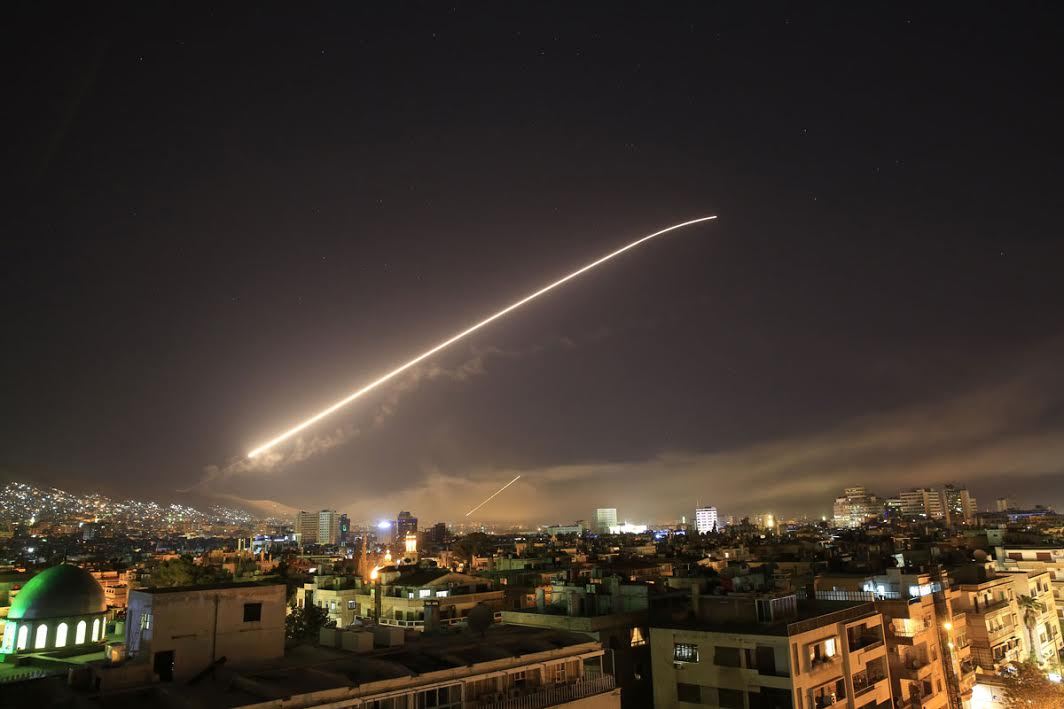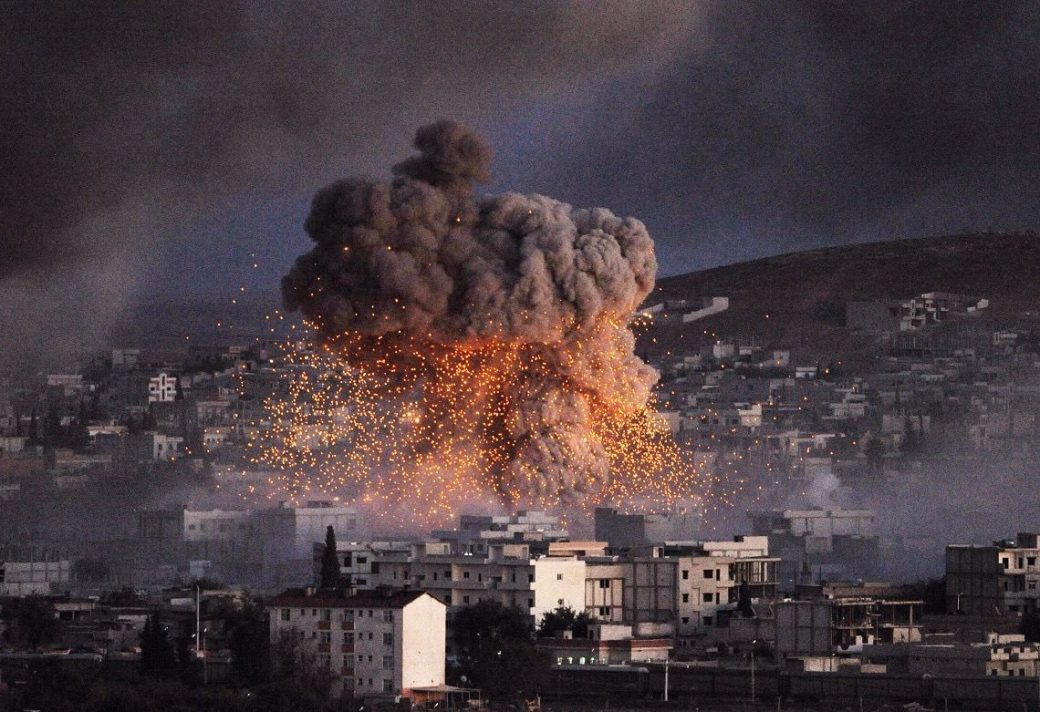Feature Article
War! For Syria, it started in 2011, when the citizens of Syria protested against their President Bashar Al Assad for his inability to deal with unemployment, extensive corruption, and economic downfall. The government turned this peaceful protest into a violent uproar when they used violence and physical prevention, to stop Syrians from protesting. A civil war had officially ignited within Syria. This civil war now engages more than the Middle East, but also Russia, US, and France.
Due to the intervention of foreign countries, there has become a larger division of the religious groups within Syria: Sunni and Shia, resulting in permanent loss of communities and peace. Several Jihadist groups such as ISIS and Al-Qaeda have also begun to reign. Russia, which had military bases in Syria, has sent many strikes on Syria in support of President Assad, on potential terrorists. Yet, many of these air strikes have destroyed communities, disabled and killed 400,000 civilians to date, and has caused 5.6 million Syrians to flee their once beloved country.
How the crisis affected Children
 The main casualties and those suffering are among children. A child was interviewed in the demolished city Aleppo and exclaims: “When Syria didn’t have planes, It was a beautiful place.But as soon as the airplanes came, they destroyed Syria and turned it into rubble.”
The main casualties and those suffering are among children. A child was interviewed in the demolished city Aleppo and exclaims: “When Syria didn’t have planes, It was a beautiful place.But as soon as the airplanes came, they destroyed Syria and turned it into rubble.”- Another parent said that her 9-year-old boy during the war saw them beheading people and hanging their heads in the street, after those incidents he became aggressive. He would throw things, break anything he could get hold of. He is always stammering at night he doesn’t sleep, he is always scared
Some of the psychological effects on children ranged from sleep deprivation and withdrawn behavior to self-harm and suicide attempts. Some had lost the ability to speak.
This truly portrays the harshness of the war and the long-lasting effect it had on little children.
Toxic effects:
It has been shown that 84% of adults and almost all children believe ongoing bombing is the number one cause of psychological stress in children’s daily lives.
Due to the ongoing bombing in Syria, if left untreated, the daily trauma can have other severe consequences such as disrupting the development of the brain during the time when the brain is forming it is likely to cause a rise in health problems into adulthood, including depression and heart diseases.
Canada and its involvement in helping Syrians
 Canada has generously given over $1 billion in humanitarian, development and security assistance in response to the Syria crisis.
Canada has generously given over $1 billion in humanitarian, development and security assistance in response to the Syria crisis. - The Government of Canada has resettled 25,000 Syrian refugees between November 2015 and February 29, 2016.
- Worked with experienced humanitarian partners in order to meet the food, shelter, health, protection, and emergency education needs of Syrians who were affected by the crisis.
- Between 2015 and 2016 Canadians have generously donated a total of $31.8 million to the Syria Emergency Relief Fund in response to the crisis in Syria.
- Canada is providing security-related assistance to address the impact of the Syrian crisis, both in Syria and in the region. These funds will help reduce the threat of chemical weapons and other weapons and materials of mass destruction.
US Attack on Syria and ISIS: Most Recent Attack on Syria
The airstrike consisting of 76 missiles hit the Barzah Research and Development Center outside Damascus. The US did this so that Syria will be behind on chemical weapons for an extensive amount of year.

The US joined forces with the British and French units, launching all the way from the air and naval location at the Persian Gulf and Eastern Mediterranean.
Although the US and its forces believe this will put Syria behind on chemical weapons, the amount of casualties and those suffering through this attack that has occurred is outrageous. Does political agenda take precedence over human life? The answer is no, most obviously, yet international forces neglect to understand the long-term harm and pain they are putting the country though, just to carry out their political goals.
When will the children of Syria wake up to the sounds of birds and not another air strike? For now, all that can be said is that a final agreement is not going to be achieved through peace, but rather through violence. Casualties are on the toll, and Syria’s peace is at stake. Prayers, fundraising, and international assistance are how the world can make this prolonged war slightly less dangerous for the Syrians. After all, humanity is like a body, if one part of it is in pain, the other parts should also feel the pain and help to make it less painful.
Bibliography:
https://www.washingtonpost.com/graphics/2018/world/syria-strikes/?utm_term=.9bf4f250791b
http://www.bbc.com/news/world-middle-east-35806229
http://www.bbc.com/news/world-middle-east-26116868
https://www.linkedin.com/pulse/long-term-affects-war-syria-creating-lost-generation
https://www.cnn.com/2017/03/07/middleeast/save-the-children-syrian-children-mental-health/index.html
https://www.rescue.org/country/syria
http://www.cbc.ca/news/politics/syrian-refugees-poll-terrorism-1.3691797
https://www.unicef.ie/stories/winter-in-syria/
https://www.lifegate.com/people/news/syria-the-environmental-crisis-behind-the-civil-war

Dear Zulkifl,
Your featured article was outstanding and truly captures the essence of how war is bred in countries such as Syria and the uprising of extremist groups. Including the effects on children and how traumatizing such incidents can be brings to us the harsh reality of your piece. The line, “After all, humanity is like a body, if one part of it is in pain, the other parts should also feel the pain and help to make it less painful,” left an imprint on me. It was a great closing statement and wrapped up your argument perfectly.
I would recommend you to just check over your sentences once you finish your work and confirm that you are not overusing commas. I noticed this in the first paragraph so I would remind you to be wary of that. Another point would be that I think you can build a better hook than what you have currently. Maybe if you used an anecdote or a few lines describing your perception of the current crisis to reel those who are pathos-oriented in.
All in all, this article was amazing, and I hope to read more of your pieces, One question I had was whether you think that this trauma in children will impact their future lives irrevocably?
Sincerely,
Abhay